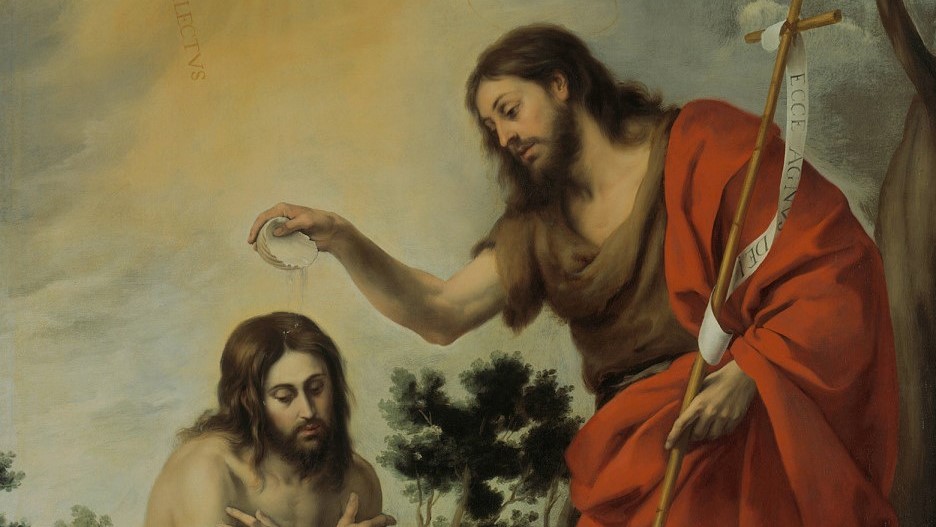The work of John the Baptist
Friday 8 July 2022 | Written by Supplied | Published in Church Talk, Features

“Prepare the way of the LORD”, was John’s great message, writes Reverend Vakaroto Ngaro of Ekalesia Avarua. History.com/22070712
Some people think that repentance is mostly about feelings, especially feeling sorry for your sin. It is wonderful to feel sorry about your sin, but repent isn’t a feelings word. It is an action word, writes Reverend Vakaroto Ngaro of Ekalesia Avarua.
In Luke’s gospel chapter 3, we read this timely story which also became a disputed doctrine over the years based on John’s baptism. It reads: Now in the fifteenth year of the reign of Tiberius Caesar, Pontius Pilate being governor of Judea, Herod being tetrarch of Galilee, his brother Philip tetrarch of Iturea and the region of Trachonitis, and Lysanias tetrarch of Abilene, while Annas and Caiaphas were high priests. Biblical chronology can be a complicated matter. From secular historical records we know with certainty the general time this was, best reckonings set it anywhere from A.D. 27 to 29.
Luke listed the political leaders of the region Jesus lived and served in. Like any good historian, Luke gave a real, historical framework. Luke gave more than a chronological measure; he also told us something of the tenor during the times of this political leaders of the day. Tiberius was an emperor known for his cruelty and severity. Pontius Pilate was also renowned for his brutal massacres of the Jewish people in Judea, and his insensitivity towards the Jews. The rulers from the family of Herod the Great (Herod, Philip, and Lysanias) were known for their corruption and cruelty. With all this, Luke reminds both his original readers and us today of the corruption and moral degradation of the Roman Empire, especially in the distant provinces like Judea.
The historical reality of these rulers is beyond dispute. Archaeologists have discovered specific, undeniable evidence that these people lived and ruled in these places and at these times. When Herod the Great died, he divided his kingdom among his three sons Herod, Philip, and Lysanias. The title tetrarch literally means governor of a fourth part … later the word widened its meaning and came to mean the governor of any part.
Luke also listed the religious leaders of Judea in the period of Jesus’ ministry. Caiaphas was actually the High Priest, but his father-in-law Annas (the patriarch of the family) was the real influence among the priestly class. The mention of these two corrupt high priests reminds us that the Jewish leaders were more interested in power politics than in serving God.
The ministry of John the Baptist emerged at just the right time as the forerunner of the Messiah. Luke carefully set the work of John in historical context, because the emergence of John the Baptist was one of the hinges on which history turned. John’s message was a call to repentance. Some people think that repentance is mostly about feelings, especially feeling sorry for your sin. It is wonderful to feel sorry about your sin, but repent isn’t a feelings word. It is an action word. John told his listeners to make a change of the mind, not merely to feel sorry for what they had done. Repentance speaks of a change of direction, not a sorrow in the heart. There was nothing strange in the ceremony of baptism (a ceremonial immersion) itself. The strange thing was that Jews submitted to baptism. This was a common ritual for Gentiles who wanted to become Jews. For a Jew to submit to baptism was to say something like, “I’m as bad as a heathen Gentile”. This was a true mark of humble repentance, a radical rededication to the Lord. Baptism by water, whether understood by the Qumran community as applicable to itself or as preached by Jewish missionaries to Gentile converts symbolised spiritual cleansing from sin, the result of forgiveness. This is different than our baptism into Christa as in Romans 6:3 – 4, where our immersion in water identifies us with Jesus’ death and resurrection. This baptism of repentance John presented identified a person with their need to get right with God and be cleansed.
Luke connected John the Baptist with the one prophesied by Isaiah 40:3 – 5. John himself was aware of this from his early days, because his father was aware of it from before John’s birth. “Prepare the way of the LORD”, was John’s great message. The Messiah is here to do things that are too big for man: filling valleys, levelling mountains, setting crooked roads straight and rough roads smooth. It simply means the way of the Messiah must be made ready. He came to all mankind.












































